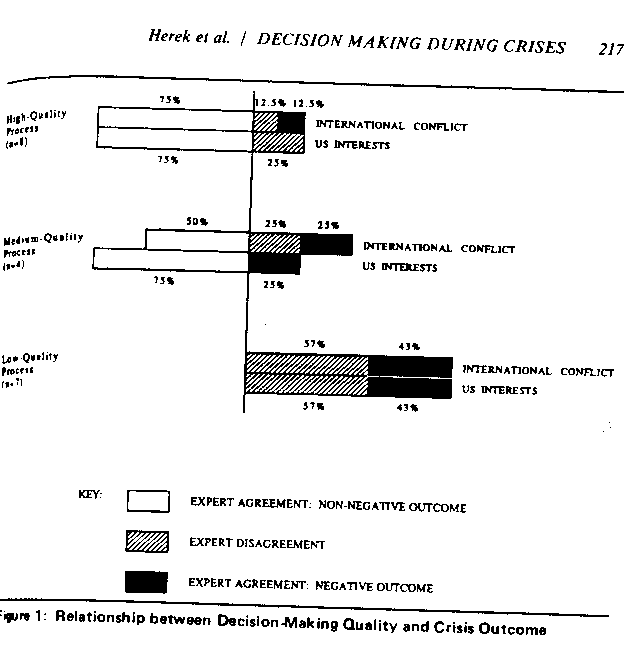Results from Herek, Janis, and Huth

There is a movement in society which seeks the destruction of the church. One method these individuals use is to buy up companies, corporations and businesses after which putting themselves out of business and or laying off catholic employees. This layoff procedure for Catholics occurs to a great extent in the U.S. school systems, police departments, fire depts. etc. The catholic church is being floored financially.
Why do the free masons persecute the catholic people? Because their good at it. The catholic church is dealing with a group of people who are intelligent, mean, nasty and judicious. These individuals run society and have a good system for themselves but seek to keep the catholic church from printing a currency and having the same system.
John Salvi III, accused of murdering several workers in an abortion clinic in Brookline, Massachusetts, in 1994.
Boston Globe, January 6, 1995. Misspellings are Salvi's.
Lord, Ross, and Lepper (1979) 24 proponents and 24 opponents of death penalty.
Subjects: Proponents Opponents -------- ---------------- ---------------- Study D.P. D.P. does D.P. D.P. does suggesting: deters not deter deters not deter ---------------------------------------------- How well conducted? +1.5 -1.6 -2.1 -0.3 How convincing? +1.4 -1.8 -2.1 +0.1But... `Our subjects' main inferential shortcoming ... did not lie in their inclination to process evidence in a biased manner...' (p. 2107)
Change in belief in deterrent effect of d.p.
by: Proponents Opponents
---------- ---------
After |d.p. deters +1.9 +0.7
results|
|doesn't deter -0.9 -1.6
After |d.p. deters +0.7 -1.0
details|
|doesn't deter +0.7 -0.8
`Our subjects' main inferential shortcoming ... did not lie in their inclination to process evidence in a biased manner ... Rather, their sin lay in their readiness to use evidence already processed in a biased manner to bolster the very theory or belief that initially ``justified'' the processing bias.' (p. 2107)
Complications per million children
UNVACCINATED VACCINATED
Cases of Whooping Cough 101,900 9,700
High-pitched Unusual Crying - 4,900
Temporary Hospitalization 11,100 1,100
Temporary Unconsciousness/Confusion
From Whooping Cough 25 2
From Vaccine - 40
Convulsions - 2,600
Long-term Brain Damage
From Whooping Cough 8 1
From Vaccine - 15
Death
From Whooping Cough 130 13
From Vaccine - 5
Source: A. R. Hinman and J. P. Koplan.
Journal of the American Medical Association, June 15, 1984.
Bias in search as well as inference:
inference
search processes
--------> evidence ----------> inference
Desire to have been right all along
vs.
Desire to be as right as possible now.
``choices are easier since all considerations are seen as pointing to the same conclusion. Nothing has to be sacrificed. But, since the real world is not as benign as these perceptions, values are indeed sacrificed'' (p. 130)
When do people avoid value trade-offs? Jervis speculates:
| Proponents | Opponents | |
|---|---|---|
| Feel that the death penalty is a more effective deterrent than life imprisonment |
93% | 8% |
| Do not feel ... | 7% | 92% |
| Society has a right to get revenge ... | 45% | 7% |
| It is immoral for society to take a life regardless of the crime... |
10% | 82% |
Yet, 66% of proponents claimed that they "would still favor capital punishment even if it were proven to be no better than life ... as a deterrent." ... 48% would favor it if it were no deterrent at all.
Only 3% of opponents would favor it if it were shown to be a deterrent.
Candidate 2 takes the opposite position on these issues.
What is the effect of the candidates' positions on a constitutional
amendment defining marriage as between a man and a woman on your
evaluation of the two candidates?
Strongly favors Candidate 1 ... Strongly favors Candidate 2
What is the effect of the candidates' positions on merging the Drug
Department with the Alcohol Department to form asingle Drug and
Alcohol Department on your evaluation of the two candidates?
Strongly favors Candidate 1 ... Strongly favors Candidate 2
The United States must employ any means necessary to prevent Iran from acquiring the capability to produce a nuclear weapon, including military strikes.
A military attack against Iran would be costly in terms of lives, finances, and American standing in the world.
If Iran acquires a nuclear weapon, it will likely use it in an actual attack.
A nuclear Iran will be more capable of spreading its oppressive style of government to other countries.
Your initial thoughts are:
"I'VE DONE A TERRIBLE THING. HOW CAN I FORGIVE MYSELF? I'M
SUCH A TERRIBLE DRIVER."
... What further thoughts do you have?
It's really terrible, it's all my fault.
But, what could I do, I didn't see this stupid dog.
Why wasn't it penned or tied up?
Anyways, this doesn't mean I am a biad driver.
It was just bad luck.
What would you then do (if anything)?
I'd try to be more cautious in my driving.

Dale's premise or justification for belief:
Congressional salaries are very high, and cutting them would make a
significant step towards paying off the huge national debt.
Critic's counter-argument: The national debt is so
large that totally eliminating all congressional salaries would
still hardly make a dent in it. (Assume statement factually
correct.)
Dale's rebuttal to Critic's counter-argument: The
members of congress, whose actions are to a considerable extent
responsible for the huge national debt, earn salaries several
times higher than the national average. (Assume statement
factually correct.)
Indicate the strength of Dale's rebuttal...
1 = Very weak ... 4 = Very strong